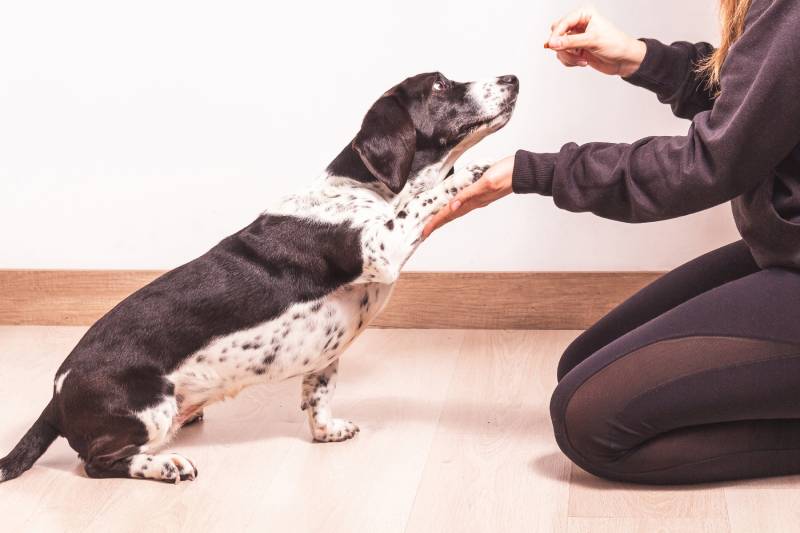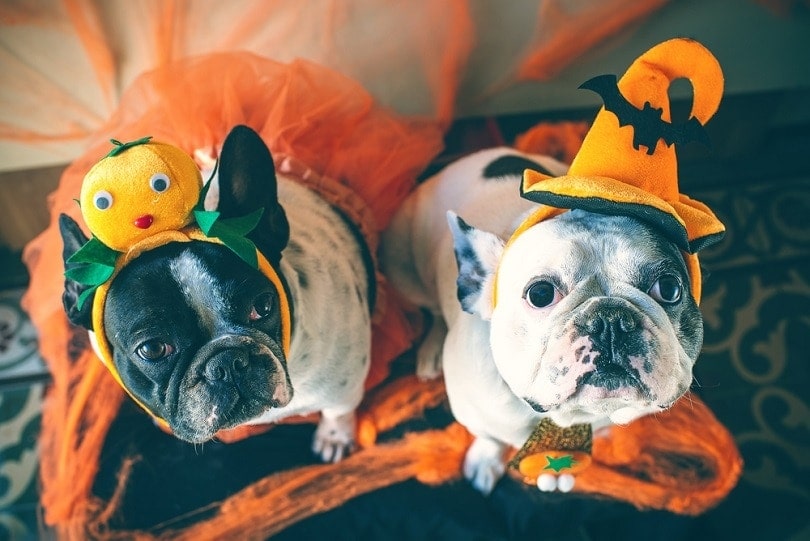Do Dogs Grieve? Vet Approved Facts, Signs & Ways to Help

By Misty Layne
Updated on
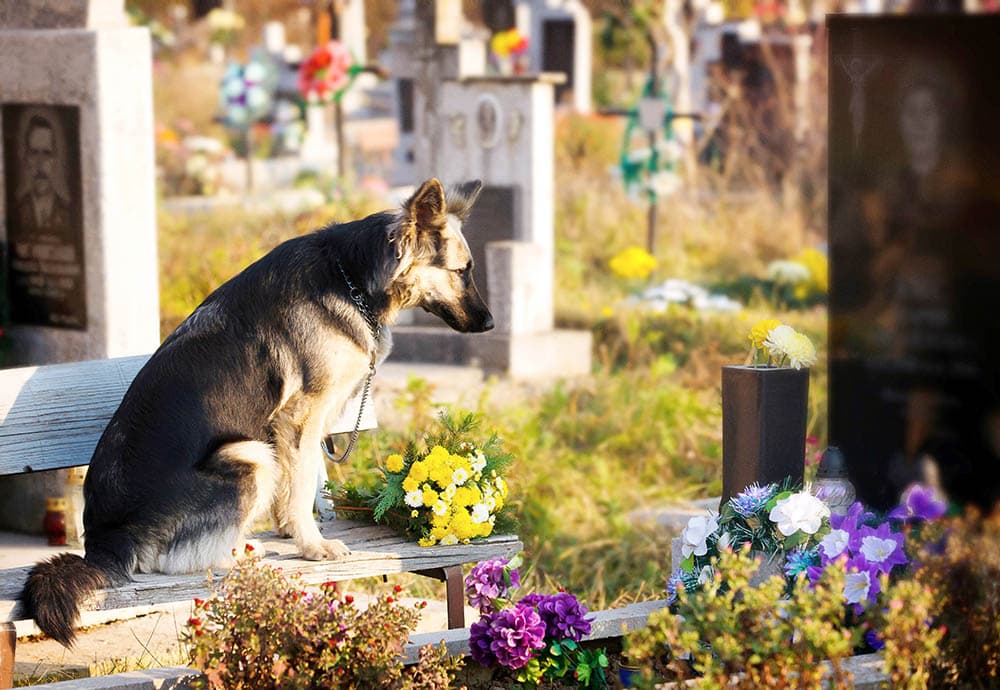
Click to Skip Ahead
It’s no secret that animals and humans are vastly different, even if we do have some commonalities. One of the things animals do differently is in how they feel (or express) emotion. Most think animals don’t feel complex emotions such as shame or pride but do feel simpler emotions like happiness.
Take dogs—they may not be able to tell us how they feel, but we certainly know when they’re happy or scared by their behavior. Honestly, is there a happier dog than the one greeting you at the door after you’ve come home from work?
What about grief, though? Does it fall under simpler emotions, and do dogs feel it? The answer, it turns out, is yes, dogs do grieve.
Do Dogs Grieve?
There are tons of accounts of dogs grieving their owners who have died. Perhaps the most famous is the story of Greyfriars Bobby, who guarded his owner’s grave for 14 years after the owner’s death. People were so touched that eventually, a statue of Greyfriars Bobby was erected.
And if you are a dog owner and have lost a person or dog, you may have noticed some behavioral changes in surviving dogs after the loss. While dogs may not understand the concept of death, per se, they are aware that the person or other dog is no longer there and that they miss them. It’s not just owner observation that has shown that dogs can grieve, though. Research has also shown that dogs will grieve the loss of others.

Signs of Grieving in a Dog
It’s important to recognize that your dog is grieving so you’re able to help them through it. And much like our own, a dog’s behavior will change when they are mourning.
- Decreased appetite
- Lethargy
- Sleeping more often
- Not wanting to play
- Being clingy with you
- Withdrawing from you or other pets/people in the home
- Searching for the dog or person who is gone
- Aggression
- Engaging in destructive behaviors
- Inappropriate elimination
 The 11 Tips on How to Help Your Grieving Dog
The 11 Tips on How to Help Your Grieving Dog
If your dog is experiencing grief, there are several ways you can help them process it and begin to move on.
1. Respect your dog’s needs
If your pup is telling you they don’t want to play, don’t keep trying to rope them into it. If they’re saying they want to be alone, let them. Encourage interaction and play, but if the answer seems to be “no thanks,” respect that.

2. Spend more time with your pup
You might settle in for a cuddle session on the sofa or try to engage them with a toy. However you do it, spending time with your dog will make them feel less lonely (though, again, if they don’t want to interact, don’t force the issue).
Exercising your dog a bit more is a great way to spend time with them, as well as to help eliminate restlessness, boredom, or anxiety.
3. Give your dog some extra company
Sometimes variety is the spice of life—having additional people around who aren’t typically there to give your pet love and attention could help spike their interest and get them out of their slump.
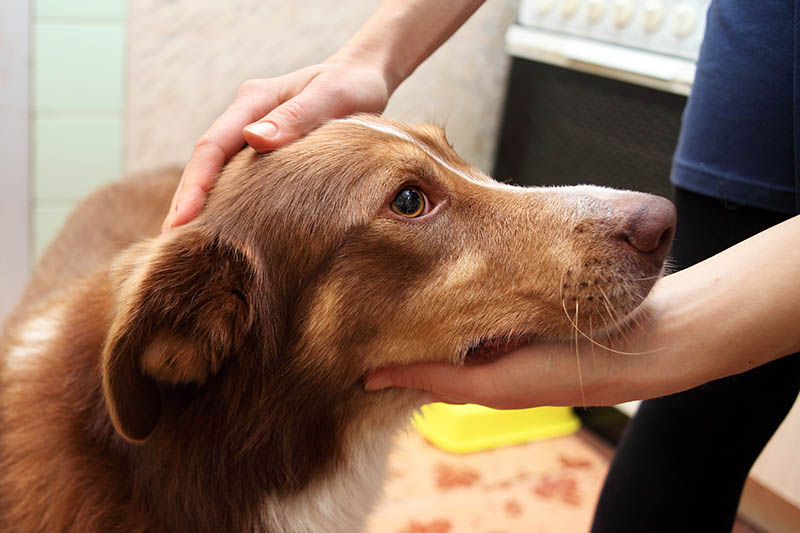
4. Cozy Cave
Ensure your dog has a lovely area to snuggle in. Some like blankets they can get under, others a fluffy bed. If your dog is crate trained make sure the area is extra inviting and feels safe and secure.
5. Keep them to their normal routine
Losing a pet or loved one will be hard on you too, but as much as possible, try to keep your dog that’s also grieving to their usual routine. Your pet is already stressed out; changing their typical meal or walk times will only stress them out more.
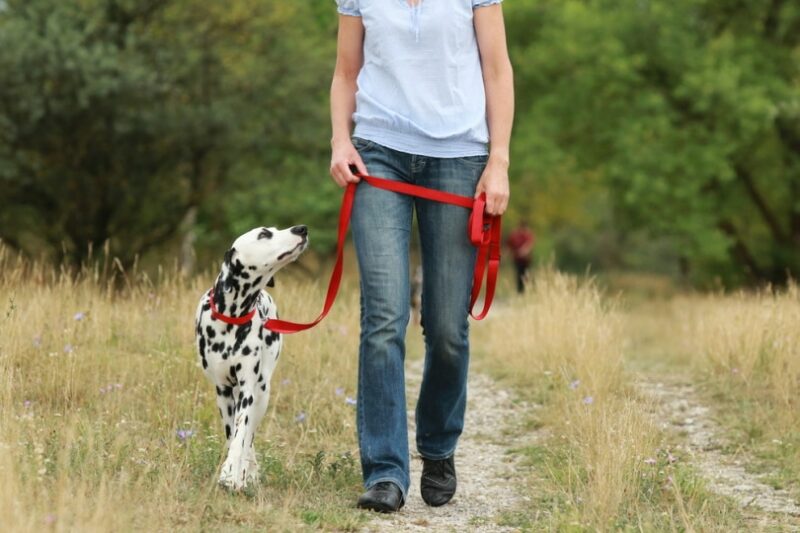
6. Diet
There are foods with natural calming additives such as Royal Canin Calm which may help your dog during this time of adjustment.
7. Supportive pheromones
Several products are available that use natural ingredients and pheromones to support your pet through difficult times, such as Adaptil and Zylkene.

8. Let your pup keep reminders if needed
Just like us, your dog may want to hang on to a reminder of a lost loved one. Usually, a good reminder will be a blanket, clothing article, or dog bed that has the scent of the animal or person who is gone.
9. Ignore bad behavior
Dogs may act out in different ways while grieving, and just as you wouldn’t get upset with a child or person who acted out in grief, you shouldn’t yell or discipline your dog over its behavior. You also don’t want to reinforce the negative behavior, so don’t try to approach your pet or give them a treat to get them to stop whatever it is they’re doing. Instead, firmly tell them to stop or just call them to you. If they stop or come to you, you can reinforce that good behavior with affection and praise.
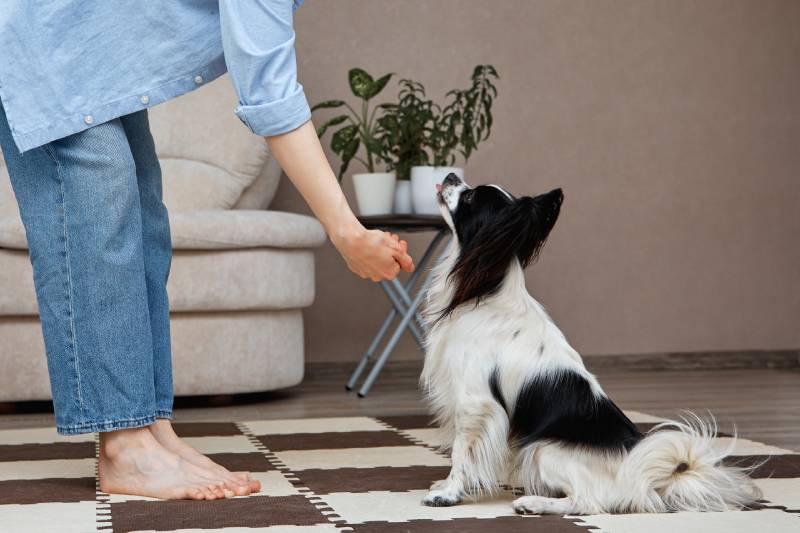
10. If it’s been months and your dog doesn’t seem to be grieving less, you should talk to your vet
There’s no timeline on grief, of course, but if your dog is becoming physically ill due to loss of appetite or stress, it should be treated.
11. Think long and hard about getting a new pet
If your dog is mourning the loss of a doggy friend, you might not want to be in a rush to get a new dog. A new dog too quickly could make your current dog more stressed. Plus, just because your dog and the dog they lost were friends doesn’t mean they’ll take to a new dog. On the flip side, a dog that was lost likely kept your other dog company while you were at work or out of the home, so a new pet could make them less lonely. Weigh the pros and cons carefully!
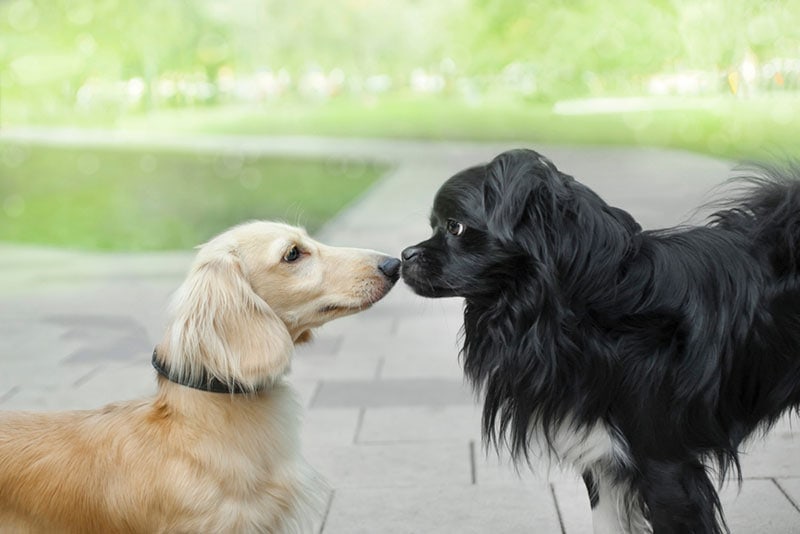
Final Thoughts
Dogs can and do grieve. It can be challenging to watch since we have no way of explaining death or loss to them, but there are ways in which you can help your pup if they’re mourning. First, know the signs of grief, so you can spot when it’s happening. Then, spend extra time with your dog, stick to their normal routine, and respect their needs during the grieving process to help them through it. Hopefully, within a couple of months, your dog will begin to get back to its usual self.
See also:
Featured Image Credit: Petrenko Andriy, Shutterstock


 The 11 Tips on How to Help Your Grieving Dog
The 11 Tips on How to Help Your Grieving Dog